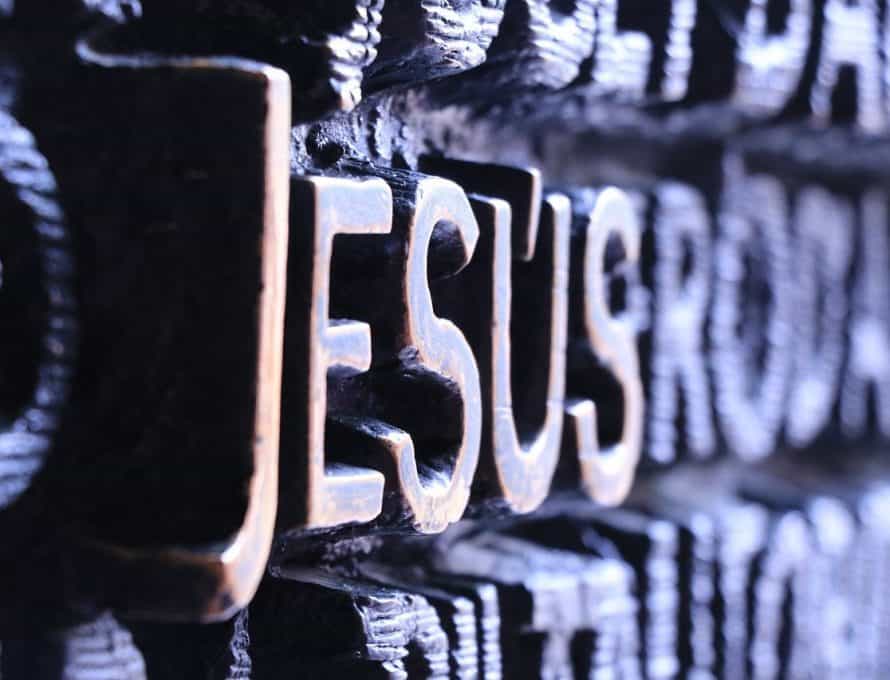Following is another in a series of columns on the Baptist Faith & Message 2000.
Article II-B of the Baptist Faith & Message 2000 reads:
“Christ is the eternal Son of God. In His incarnation as Jesus Christ He was conceived of the Holy Spirit and born of the virgin Mary. Jesus perfectly revealed and did the will of God, taking upon Himself human nature with its demands and necessities and identifying Himself completely with mankind yet without sin. He honored the divine law by His personal obedience, and in His substitutionary death on the cross He made provision for the redemption of men from sin. He was raised from the dead with a glorified body and appeared to His disciples as the person who was with them before His crucifixion. He ascended into heaven and is now exalted at the right hand of God where He is the One Mediator, fully God, fully man, in whose Person is effected the reconciliation between God and man. He will return in power and glory to judge the world and to consummate His redemptive mission. He now dwells in all believers as the living and ever present Lord.”
Simply stated, the doctrine of the Incarnation means the eternal Son of God took on human flesh in the person of Jesus of Nazareth. As such, Jesus is one person in two natures: divine and human. As the apostle John writes, “The Word became flesh and dwelt among us” (John 1:14).
The importance of this truth should not be overlooked. If Jesus is not divine, he cannot be the Christ; if he is not human, he cannot be our Mediator.
The doctrine of the Incarnation flows naturally from a biblical understanding of the Trinity. Historic Christianity affirms belief in one infinitely perfect, eternal, and personal God, the transcendent creator and sovereign sustainer of the universe. This one God is triune, existing eternally and simultaneously as three distinct, but not separate, persons: Father, Son, and Holy Spirit.
In this light, Jesus clearly may be seen as the eternal Son of God who, in the Incarnation, set aside his privileged position (but not his deity) at the Father’s right hand in order to become a sinless human who rescued us from sin by becoming sin for us on the cross (2 Cor. 5:21).
Christ’s deity
The New Testament writers consistently affirm the deity of Christ, calling him God (John 1:1), the creator (John 1:3; Col. 1:16), and equating him with the Father (Heb. 1:3). In response to those who say the Jesus never claimed to be God, consider:
1. Jesus uses the divine expression “I AM,” echoing God’s self-revelation to Moses in the burning bush (Exod. 3; John 8:24, 28, 58, et al).
2. Jesus claims equality with God (John 5:18; 10:30; 17:5).
3. Jesus receives worship (Matt. 28:17; John 20:28).
4. Jesus forgives sins (Mark 2:1-12).
5. Jesus teaches with divine authority (Mark 1:21-22; John 8:13-20; 12:49-50).
6. Jesus affirms the apostles’ statements of his deity. That is, he promises the apostles that the Holy Spirit will guide them into all truth and bring to their minds the things he says and does. In effect, he confirms in advance what they write later (John 1:1-3, 14; Col. 1:15-16; 2:9; Phil. 2:5-11; Heb. 1:1-4).
7. Jesus demonstrates the attributes unique to God: omniscience (John 16:30); omnipotence (Matt. 28:18); omnipresence (Matt. 28:20); eternality (John 1:1); immutability (Heb. 13:8); divine authority (John 5:22.) Even the Father calls Jesus God (Heb. 1:8).
Divinity in human skin
If the Incarnation means that Jesus is completely divine and completely human at the same time, never surrendering one nature to the other, how might we explain the apparent absence of divine attributes at certain times in our Savior’s life?
For example, why doesn’t Jesus know the day and hour of his return? Why does he get tired, thirsty, and hungry? And why does he insist that the Father is greater than he is?
Theologian Bruce Ware provides marvelous insight into the two natures of Christ in The Man Christ Jesus. He begins with Philippians 2:5-8, which expresses the self-emptying of the eternal Son as he takes on human nature.
First, Ware notes that Paul expresses no doubts about the deity of Christ. The phrase “though he was in the form of God” (v. 6) means Jesus exists in very nature as God, with the inner divine substance that is God’s alone.
Second, when Paul writes that Christ “did not count equality with God a thing to be grasped” (v. 6), he means that Jesus did not cling to his privileged position at the Father’s right hand, or to the rights and prerogatives that go along with full equality with the Father. Instead, he fulfilled his mission as the servant of all.
Third, Jesus “emptied himself, by taking the form of a servant” (v. 7). The Greek ekenosen means Christ “poured out himself.” In other words, all of Christ, as eternal God, is poured out. As Jesus becomes human, he loses nothing of his divine nature.
Fourth, Jesus “humbled himself by becoming obedient to the point of death, even death on a cross” (v. 8). Ware notes, “To obey to the point of death requires the ability to die, and for this, Jesus had to be human.”
So, when we come to passages that tell us Jesus doesn’t know something, or gets hungry or thirsty, or dies, we may understand that Jesus neither surrenders his deity nor abandons his claims of divinity. Rather, “he had to be like his brothers and sisters in every way, so that he could become a merciful and faithful high priest in matters pertaining to God, to make atonement for the sins of the people” (Heb. 2:17 CSB).
Next: Article II-C of the BF&M: God the Holy Spirit

